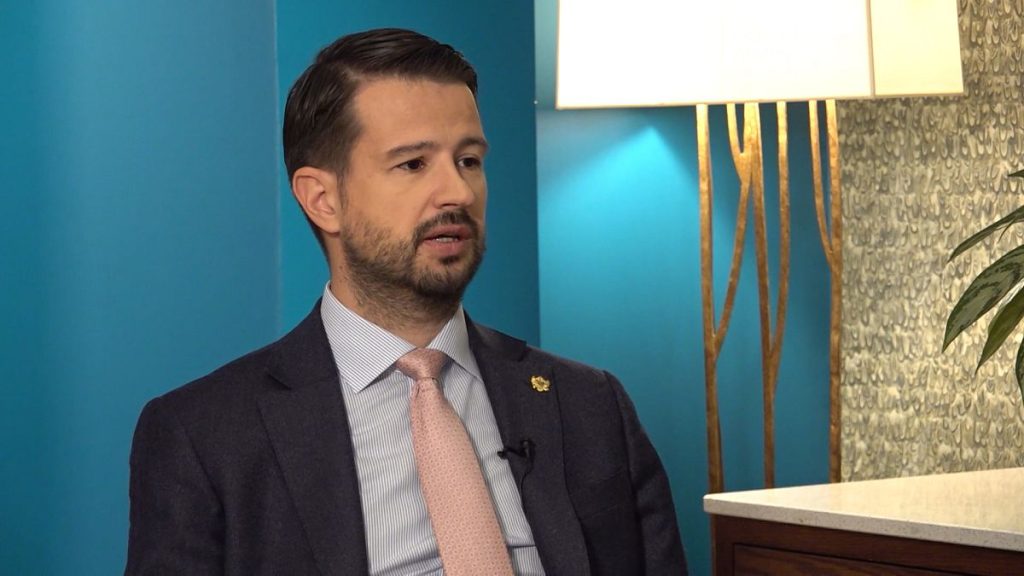Montenegro’s President, Jakov Milatović, has affirmed his belief in the right of every nation to determine its own destiny, emphasizing Ukraine’s eventual accession to NATO. While expressing support for Ukraine’s membership aspirations, he refrained from advocating for an immediate invitation or linking it directly to peace negotiations with Russia. Instead, Milatović highlighted existing NATO initiatives, such as the enhanced partnership status and the comprehensive support mechanism established for Ukraine, as crucial steps towards achieving a just and lasting peace. He underscored the importance of continued dialogue among NATO members concerning Ukraine’s membership, particularly in anticipation of the upcoming summit in The Hague.
Milatović’s remarks come amidst ongoing debates within the alliance about the timing and conditions for Ukraine’s NATO membership. Ukrainian President Volodymyr Zelenskyy has urged for an immediate invitation, viewing it as integral to his Victory plan and a potential catalyst for ending the war with Russia. This position underscores Ukraine’s conviction that a durable peace can only be secured if its unoccupied territories are safeguarded under the collective defense umbrella provided by full NATO membership.
NATO’s posture towards Ukraine has evolved over the course of the conflict. Last year, the alliance elevated its relationship with Ukraine, signaling a deepening commitment. More recently, during the 75th-anniversary summit in Washington DC, NATO leaders reaffirmed Ukraine’s “irreversible path” to membership and unveiled a substantial package of military assistance. This package encompasses advanced weaponry, including F-16 fighter jets, and a comprehensive plan to enhance interoperability between Ukrainian forces and NATO allies.
However, despite these positive developments, significant obstacles remain on Ukraine’s path to NATO membership. Several member states have voiced reservations, citing Ukraine’s perceived failure to meet the alliance’s military standards. They argue that further integration and reforms within the Ukrainian armed forces are prerequisites for membership. This cautious approach also stems from concerns that admitting Ukraine during an ongoing conflict could exacerbate tensions with Russia and potentially escalate the conflict.
Another key consideration is the potential impact of NATO membership on the prospects for peace negotiations between Ukraine and Russia. Some argue that granting Ukraine membership before a resolution to the conflict could be viewed by Russia as a provocative move, hindering diplomatic efforts. Others contend that NATO membership would strengthen Ukraine’s negotiating position and could ultimately contribute to a more durable peace by deterring further Russian aggression.
The upcoming NATO summit in The Hague will be a critical juncture for addressing these complex issues. As Milatović indicated, Ukraine’s membership bid will undoubtedly be a central topic of discussion. The alliance will need to carefully weigh the various perspectives and consider the potential consequences of its decisions. Balancing the imperative to support Ukraine’s sovereignty and security with the need to manage escalating tensions with Russia represents a significant challenge for NATO. The summit will provide an opportunity for allies to reaffirm their commitment to Ukraine while seeking a path towards a peaceful resolution to the conflict.














